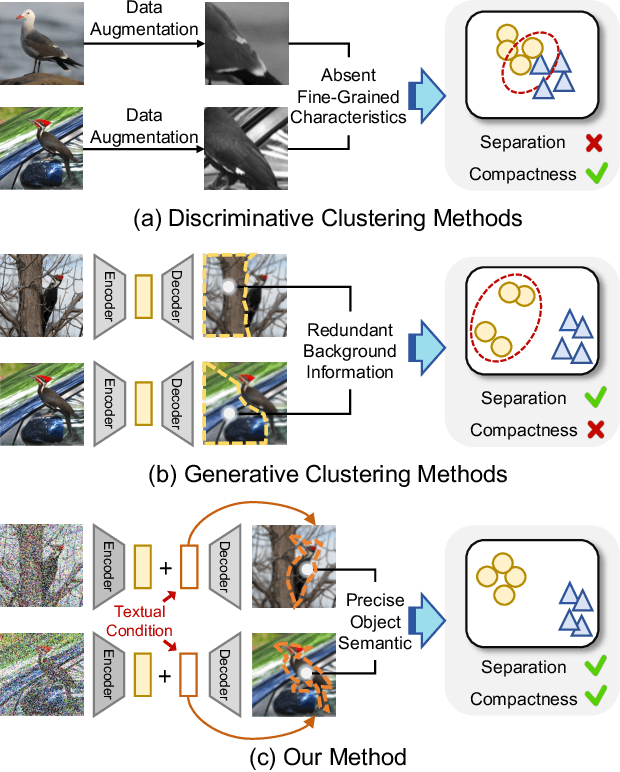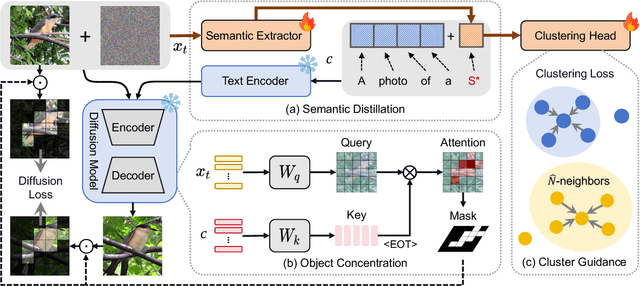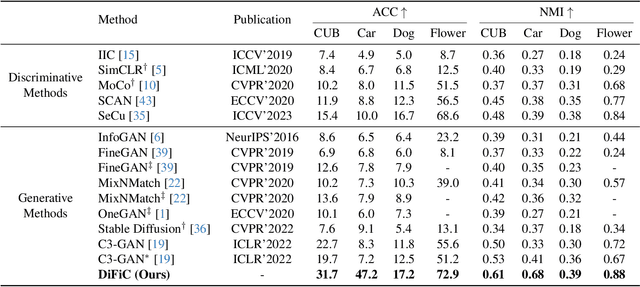Xiting Liu
DiFiC: Your Diffusion Model Holds the Secret to Fine-Grained Clustering
Dec 25, 2024



Abstract:Fine-grained clustering is a practical yet challenging task, whose essence lies in capturing the subtle differences between instances of different classes. Such subtle differences can be easily disrupted by data augmentation or be overwhelmed by redundant information in data, leading to significant performance degradation for existing clustering methods. In this work, we introduce DiFiC a fine-grained clustering method building upon the conditional diffusion model. Distinct from existing works that focus on extracting discriminative features from images, DiFiC resorts to deducing the textual conditions used for image generation. To distill more precise and clustering-favorable object semantics, DiFiC further regularizes the diffusion target and guides the distillation process utilizing neighborhood similarity. Extensive experiments demonstrate that DiFiC outperforms both state-of-the-art discriminative and generative clustering methods on four fine-grained image clustering benchmarks. We hope the success of DiFiC will inspire future research to unlock the potential of diffusion models in tasks beyond generation. The code will be released.
Test-time Adaptation for Cross-modal Retrieval with Query Shift
Oct 21, 2024



Abstract:The success of most existing cross-modal retrieval methods heavily relies on the assumption that the given queries follow the same distribution of the source domain. However, such an assumption is easily violated in real-world scenarios due to the complexity and diversity of queries, thus leading to the query shift problem. Specifically, query shift refers to the online query stream originating from the domain that follows a different distribution with the source one. In this paper, we observe that query shift would not only diminish the uniformity (namely, within-modality scatter) of the query modality but also amplify the gap between query and gallery modalities. Based on the observations, we propose a novel method dubbed Test-time adaptation for Cross-modal Retrieval (TCR). In brief, TCR employs a novel module to refine the query predictions (namely, retrieval results of the query) and a joint objective to prevent query shift from disturbing the common space, thus achieving online adaptation for the cross-modal retrieval models with query shift. Expensive experiments demonstrate the effectiveness of the proposed TCR against query shift. The code will be released upon acceptance.
 Add to Chrome
Add to Chrome Add to Firefox
Add to Firefox Add to Edge
Add to Edge